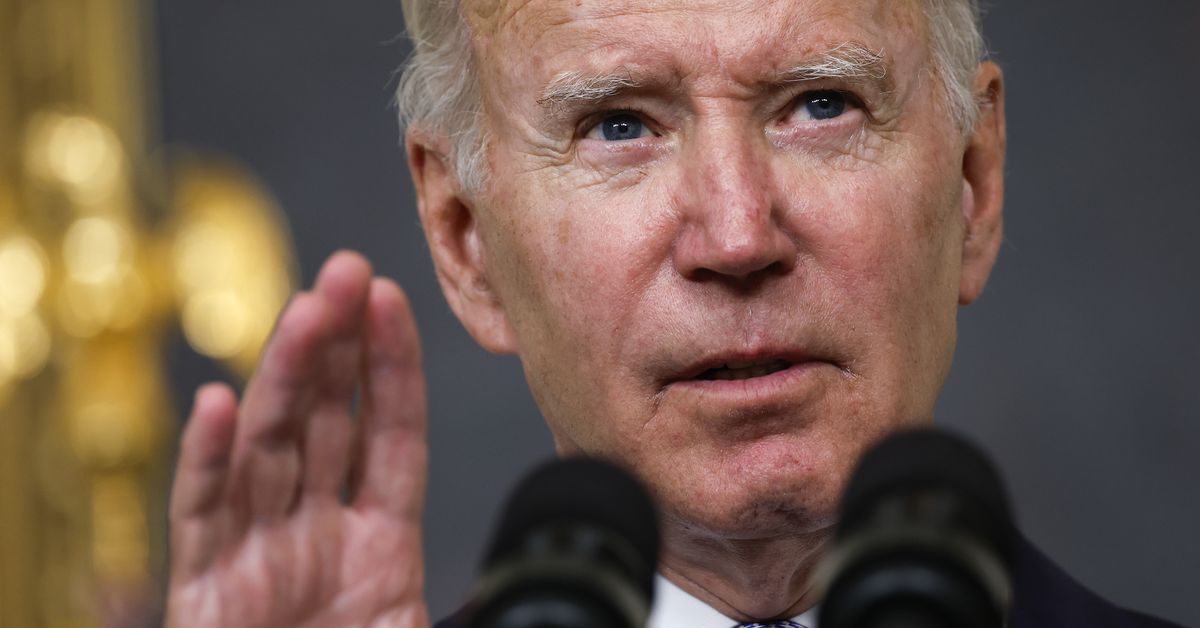
It’s been a long road for the “Build Back Better” plan — but Wednesday night, after over a year of both public and private negotiations, we finally saw a proposal that could actually clear Congress. Renamed the “Inflation Reduction Act,” the new Sen. Manchin-endorsed proposal would raise roughly $740 billion in revenue through a combination of tax increases and price negotiation — and divert $370 billion of that money to fighting climate change. If it makes it through Congress, the bill would be the largest climate spending package in US history — and with alarming heatwaves in progress all around the world, it couldn’t come at a better time.
But while the sheer volume of the package is striking, it’s even more interesting where the money is going. Lowering US emissions will require a lot of physical equipment — for alternate power sources like solar and wind, as well as efficiency equipment like heat pumps. The new proposal lays out an industrial policy for building that equipment, providing new incentives at every phase of the process.
The bill gives $30 billion in tax credits to utilities that develop clean energy sources and another $27 billion in accelerator funds to support deployment of emission-reducing technology. Another $20 billion will be loaned out to support domestic electric car factories, with $10 billion in investment tax credits for factories making wind turbines or solar panels. On the demand side, the bill establishes 10 years of consumer tax credits for homeowners who buy heat pumps, rooftop solar panels, or other equipment that will make their homes more energy efficient.
Put simply: this bill is putting up a lot of money to make sure these technologies get developed, built, and installed. There are direct efforts to cap emissions, too — whether by plugging methane leaks or incentivizing industrial sites to get cleaner — but the bulk of the climate plan rests on this idea of increased production to make the economy greener while helping it grow.
That represents a real political gambit for Democrats, balancing the urgency of climate action against real political pressure from rising energy prices and general economic chaos. Building off the Green New Deal proposals from the 2020 campaigns, Democrats want to put forward a kind of climate action that doesn’t hurt the economy or raise gas prices — and doesn’t cost them votes as a result. But even if the political calculus is right, it’s hard to predict whether the approach will actually succeed in bringing down US emissions and meeting our aggressive climate goals.
The political gambit is reflected in how the White House is describing the package — downplaying its climate impact in favor of an emphasis on lower energy costs and more manufacturing jobs. “We will improve our energy security and tackle the climate crisis — by providing tax credits and investments for energy projects,” the White House said in a statement Wednesday night. “This will create thousands of new jobs and help lower energy costs in the future.”
There are real drawbacks to this approach. In particular, it requires making significant concessions for oil and gas drilling on federal land — which will translate more directly to carbon emissions than almost anything else in the bill. Alongside the new funding for climate, the bill contains measures to streamline permitting for natural gas pipelines and opening new leases for offshore drilling and other extraction projects on public land.
When those new fossil fuel projects are weighed against the renewal subsidies, some environmental groups believe the bill may actually make things worse. In a statement on Wednesday, Food & Water Action executive director Wenonah Hauter said the agreement “won’t solve the crisis, and may make it worse. The few details released this evening suggest this deal will prop up fossil fuels and promote the various false climate solutions beloved by industry.”
The tradeoff rests on factors that are hard to predict. If the proposal succeeds in sparking a burst in renewables and bringing energy prices down, offshore drilling may not be profitable enough to pursue, even with the new lease promises in place. But if the new incentives don’t have that effect, the overall impact could simply be to open up more public land to fossil fuel extraction, pumping that much more carbon into the atmosphere and digging the hole that much deeper.
For the most part, climate groups have been optimistic about the proposal, with the National Resources Defense Coalition calling it “a giant step forward.” With record temperatures adding immediacy to the problem, it’s not clear what alternative there is: a climate policy that raises gas prices and costs jobs isn’t likely to stay in place for long. But as the smaller bill limps towards the finish line, it’s hard not to wonder if we’re sacrificing a livable future for a politically expedient present.
https://www.theverge.com/2022/7/28/23282623/biden-inflation-reduction-act-bbb-build-back-better-climate

